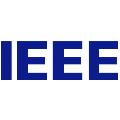The increasingly severe congestion problem in modern cities strengthens the significance of developing city-scale traffic signal control (TSC) methods for traffic efficiency enhancement. While reinforcement learning has been widely explored in TSC, most of them still target small-scale optimization and cannot directly scale to the city level due to unbearable resource demand. Only a few of them manage to tackle city-level optimization, namely a thousand-scale optimization, by incorporating parameter-sharing mechanisms, but hardly have they fully tackled the heterogeneity of intersections and intricate between-intersection interactions inherent in real-world city road networks. To fill in the gap, we target at the two important challenges in adopting parameter-sharing paradigms to solve TSC: inconsistency of inner state representations for intersections heterogeneous in configuration, scale, and orders of available traffic phases; intricacy of impacts from neighborhood intersections that have various relative traffic relationships due to inconsistent phase orders and diverse relative positioning. Our method, CityLight, features a universal representation module that not only aligns the state representations of intersections by reindexing their phases based on their semantics and designing heterogeneity-preserving observations, but also encodes the narrowed relative traffic relation types to project the neighborhood intersections onto a uniform relative traffic impact space. We further attentively fuse neighborhood representations based on their competing relations and incorporate neighborhood-integrated rewards to boost coordination. Extensive experiments with hundreds to tens of thousands of intersections validate the surprising effectiveness and generalizability of CityLight, with an overall performance gain of 11.68% and a 22.59% improvement in transfer scenarios in throughput.
翻译:暂无翻译




